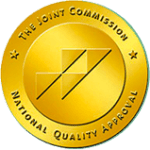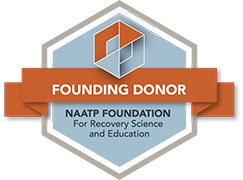Self-Care Is Critical, No Matter How Long You’ve Been in Recovery
Self-care is all about nurturing a loving, kind, respectful relationship with ourselves, and it’s takes work – just as other meaningful relationships in our lives do. As an ongoing, lifelong process, we have to remind ourselves to continue building upon that relationship – but if we get too comfortable in our recovery, we may find ourselves “skipping” over some of these minor elements of self-care that make a huge difference in the long run. We may tell ourselves that we’ll do it “tomorrow”, but then tomorrow never comes. We may claim that we’re too tired, because we’ve had a long day – but in reality, that only warrants more self-care to ensure that our mind, body and spirit are aligned. Whether you’ve been putting off self-care or just need more ideas on what you can implement into your long-term recovery plans, self-care is part of the glue that holds us together.
What is Self-Care?
In 2018, the New York Times gave us a working definition of self-care. They defined it, as noted by the Oxford Dictionary, as, “…Taking action to ‘preserve or improve one’s own health’.”
They described a number of actions that could count for self-care, such as saying “no” to something that won’t benefit your mind, body or spirit, taking a walk when you need it, helping others, exercising, eating healthily, stretching, listening to music, spending time alone, and so much more. For Francesca Donner, a contributor to the New York Times, cooking her favorite dinner has become a form of self-care. She stated, “…When life starts spinning too fast, I go to the supermarket and get what I need: ground beef, garlic, mushrooms, carrots, flat leaf parsley, canned tomatoes, tomato paste, dried pasta. My world starts to calm just seeing the ingredients collected together in the basket.”
Take a second to think about what you’ve been doing for self-care lately. Has what you been doing worked well for you, or are you finding that your days seem a bit more damp, stressed, and unmanageable than usual? If you’ve been working towards your recovery for quite some time now, now it not the time to fade away from self-care. In fact, you need self-care now more than ever because you’ve become more integrated into “daily life” which may include work, school, family responsibilities and, needless to say, less emphasis placed on recovery activities – such as those you may have been part of every day in the beginning of your recovery journey.
Re-integrating Self-Care Into Your Daily Life
If you’re ready to get back to it, self-care can bring you right where you need to be in your maintenance journey. A 2017 study published in the journal Issues in Mental Health Nursing found that a number of self-care behaviors can support prolonged recovery, such as: continuing education, sponsorship in 12-Step programs such as Alcoholics Anonymous (AA), establishing boundaries, self-monitoring for destructive thoughts or emotions, maintaining spirituality, exercising and eating healthy foods. Furthermore, an integrative review written by researchers from the International Nurses Society on Addictions explained in 2016 that these self-care behaviors can improve a person’s self-esteem and sense of wellbeing which, ultimately, yields to better health outcomes in the long run.
With so many ways to practice self-care, how can you slowly integrate some of these back into your life?
First, you need to establish a habit again. In his book, The Power of Habit, author Charles Duhigg emphasizes that by declaring just one thing you’d like to implement more in your life – such as making your bed everyday – and holding the perspective that you need to do this in order to achieve the goals you desire – a chain reaction of other helpful habits will naturally take place as your mind becomes influenced by what you’ve been doing. If you’re ready to get your recovery back on track, pick something that you know would ease less stress for you each day – such as dedicating 20 minutes of reading every night, or giving yourself 1 hour of alone time each day to lie down – and you’ll find that it sparks a chain reaction of events that also serve to improve your self-care.
Next, you need to focus on what these self-care actions are going to do for you. When you were actively practicing self-care as part of your recovery, how did you feel before? Were you able to achieve weight loss? Did you have a higher self-esteem? Were you able to go to work with clarity and purpose, almost as if you walked into the door with a “skip in your step”? Did you feel like you had more energy to give service to others? Start thinking about what it is that self-care does for you and keep that in your vision of focus as you work towards getting what you need.
Lastly, design your routine. Pick a specific time of day if you can and stick to it. Your mind and body will start to associate that time of day with a certain self-care activity, and as the weeks go by, it will become more second-nature to you. Be diligent in your efforts – it takes several weeks to replace our old habits with new ones.
Long-term recovery is about going through these ups and downs and finding what you need – as well as what you don’t need – as time goes on. Continue checking in with yourself and you’ll find that the benefits of self-care start re-appearing throughout your daily life.
This is the year to change your life from suffering due to the disease of addiction to thriving in the sunlight of the spirit of sobriety. As the world’s first 12-Step treatment center, established in 1939, High Watch Recovery is dedicated to educating patients on 12-Step principles, actions, philosophies, and lifestyles, preparing them to live a happy and healthy sober life after graduating. For information on our continuum of clinical care and our compassionate approach to treatment, call us today: 860.927.3772.








